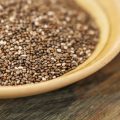Endurance sports may feel like a musical show. They could start with low key, going for a steady rhythm and finally culminating into a crescendo. When arranged properly, both can enthral spectators easily. Endurance sports demand flawless performance of body, because they are designed to test the limit of our resilience. Athletes often need to endure a pace that borders on total fatigue. As a result, athletes need to consume enough nutrients, including quality protein. To delay fatigue and sustain effort, our body needs enough fuel and energy. The greater the intensity, the greater energy is needed. We should also have proper respiratory and cardiovascular capacity. Activities of renal support and hepatic systems could also expand exponentially. Eventually, metabolism starts to slow down to allow for excretion of heat, acids and waste. Fatigue will start to set in and our body needs proper stimulus for development and growth. After undergoing specific amount of physical activity, dietary protein allows for the release of insulin and growth hormone.

While much of the energy during a workout is provided by carbohydrate and fat; protein and amino acids provide only up to six percent. The amount of energy derived from the breakdown of protein will increase with overall intensity of exercise. Given their role to muscle-building sports, like bodybuilding; protein shouldn’t be used as fuel and it needs to be used directly to improve protein mass. It should be noted that with inadequate protein intake, we will fail to protect protein from being broken down and used as fuel. Amino acids should be used especially for growth and not to be burnt up as fuel. It is clear that endurance athletes require protein, but does it mean that protein supplements are needed? In general, protein supplements should be used by professional athletes who are deficient in proteins.
There are different sources of protein that we can choose. Protein from both animal and plant sources are beneficial for our body. It is advisable to obtain balanced amount from both sources. Legumes are primary sources of plant-based protein. However, when we are attempting to gain animal-based protein, we should consume only the meat. Skin, fat layers and internal organs are often rich in fat, although they could still be rich in protein. In general, endurance athletes should consume complex carbohydrates, healthy fats from fish and plants, as well as protein from low-fat sources. When we are planning to build sufficient muscle mass, we should make sure that much of our fuel is derived from complex carbohydrate and fat.
In general, athletes who seek to build their muscle mass could require protein intake about 20 percent higher than usual. Protein from healthy meals is always the best option, instead of from fat-rich sources and supplements. Fruits and vegetables, especially those that are rich in antioxidant are also essential for our body. Highly active individuals produce substantially more free radicals than people with sedentary lifestyle. The perfect protein source is healthy meals and they are affordable and better than even the best supplements in the market.































No Comments
Leave a comment Cancel